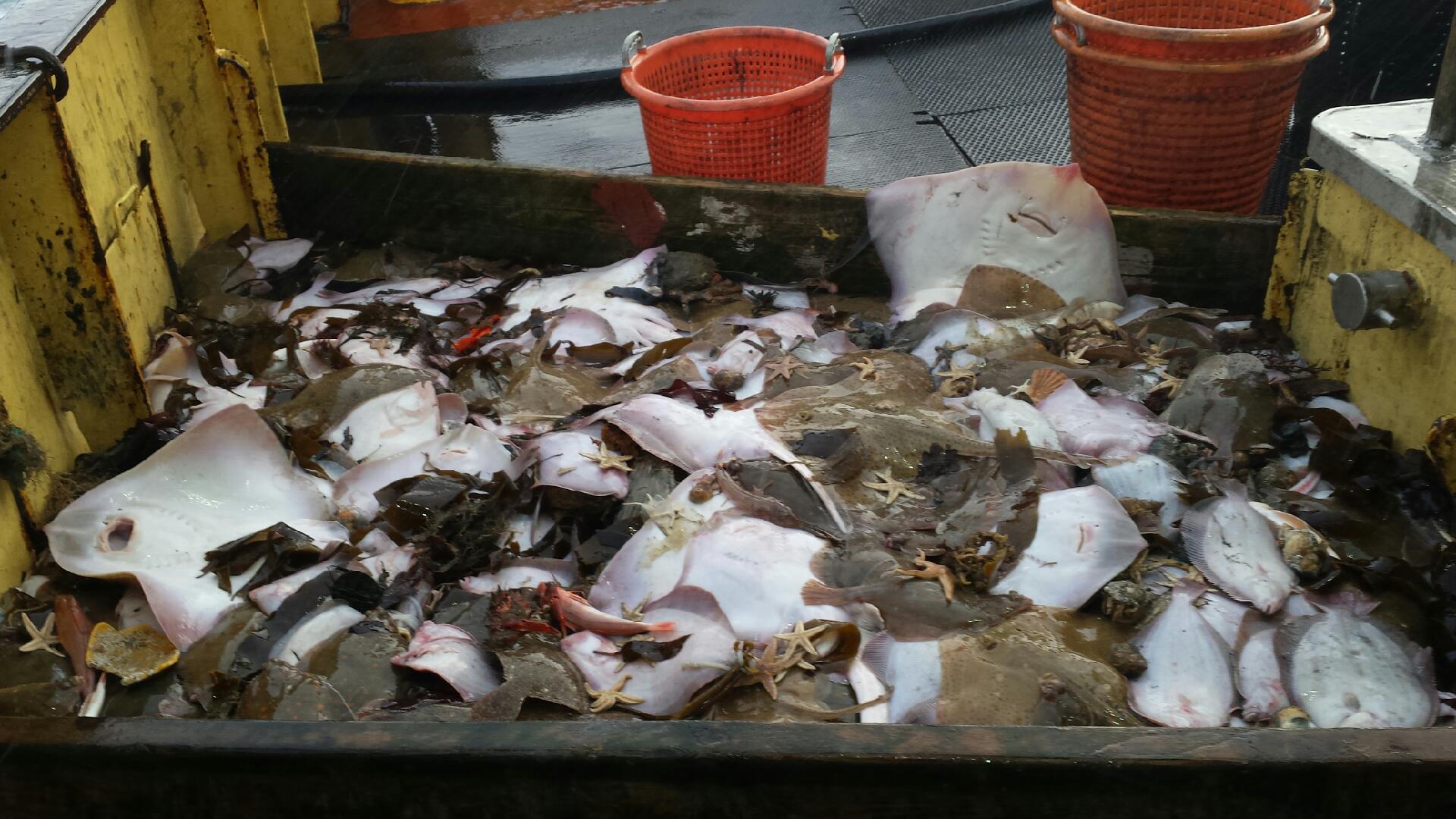In September 2014, a group of people, actively working in different aspects of UK fisheries, gathered to discuss what the future might hold for UK fisheries.
To see who attended the workshop click here.
They discussed questions like:
Which species will be on the menu?
What will the British fleet look like?
How much will a wild caught fish be worth?
After watching the video you are encoraged to rspond here:
We would like to hear your vision for UK fisheries in 2050. We will be incorporating comments we receive to our draft vision at the end of February 2015. Alternatively, submit your own vision of what you want the future to look like. Follow us on Twitter - @UKFisheries2050 - or look for #Fisheries2050.
This was the vision:
In 2050 the human population is now at nine billion. Land-based food production has become focused on growing crops for carbohydrates (eg grains, rice, vegetables) because growing animals for meat is a less efficient use of land. In contrast, the energetics of the marine environment are such that sunlight is efficiently converted into protein (marine animals), so fish and shellfish has become an increasingly important protein source.To see who attended the workshop click here.
They discussed questions like:
Which species will be on the menu?
What will the British fleet look like?
How much will a wild caught fish be worth?
After watching the video you are encoraged to rspond here:
We would like to hear your vision for UK fisheries in 2050. We will be incorporating comments we receive to our draft vision at the end of February 2015. Alternatively, submit your own vision of what you want the future to look like. Follow us on Twitter - @UKFisheries2050 - or look for #Fisheries2050.
This was the vision:
UK seas are 2–3°C warmer than 2014, which has resulted in shifts in the distributions of some species, the reorganisation of many fish communities and new fishing opportunities. Cold-loving species, such as cod, haddock and whiting have declined, while we have seen an increase in warm-loving species, such as red mullet, red gurnard and John Dory. Though species composition has changed, European seas have remained productive.
The UK has been a global leader in reforming its fisheries. More UK fisheries are sustainable and productive than in 2014, and fishermen now have a better standard of living with a guaranteed level of income through salaries. Existing law and policy was applied sensitively and adaptively, which led to the recovery of many commercially important fish stocks. Rising fuel costs prompted industry-led initiatives to reduce dependence on fossil fuels, mainly through the implementation of innovative technologies. The industry has raised its standards of labour practices and fishing methods in consideration of the welfare of the people and the animals involved.
In 2050, there are distinct forms of fish production and markets within UK fisheries. An artisanal market has developed around inshore capture, using static gear, short supply chains, valued coastal communities and highly informed consumers. Offshore fisheries are sustainable as a result of new technologies and mostly supply businesses buying in bulk, such as those producing highly processed fish products. Aquaculture focuses on mass protein production as well as niche production of a few high value species. The UK industry has reduced its dependence on wild-caught fisheries by increasing production of molluscs and crustaceans as well as herbivorous fish, such as carp and mullet, but also through advances in alternative protein sources in fish food.
Fishing businesses at all scales are more stable due to fair prices, lower market volatility and more co-operative business models. Fishermen are well-educated and attentive to the markets in which they operate. The management framework and technologies exist to allow fishermen to be responsive to real-time communication with buyers and consumers in order to deliver a quality, fairly-priced product in an internationally competitive market.
All consumption is of sustainably fished, fully traceable stock, whether caught locally or imported from overseas. The UK example has resonated globally, resulting in marked improvements in international standards and practices. Some consumers have embraced and celebrate seasonality and diversity of UK fisheries, increasingly choosing to “Buy British”, and all experience the health benefits of regular fish consumption. Waste has been reduced through gear modification and targeted fishing, use of the whole catch and efficient use of all products pulled from the sea.
Large databases built on many decades of information gathered from a multitude of sources contribute to real-time, responsive management. Fishing boats act as research vessels with on-board image recognition technology that automatically digitises catch data and pools it from multiple sources. These data, alongside adaptive regulatory tools, have revolutionised stock management and near-time prediction of landings.
In thirty-five years, changes within the UK fishing industry have made it a sustainable option for meeting protein demands. Healthy oceans have been achieved alongside improvements in the economic sustainability and wellbeing of fishing communities. Consumers trust the integrity and sustainability of UK seafood supply networks and aim to buy British products, pay fair prices for their products and embrace new species as they become available. These changes, from suppliers to consumers, have made the UK fishing industry more resilient to the changes that have come about as a result of climate change. As we face more environmental uncertainty beyond 2050, we are confident that UK fisheries will not only continue to contribute to the food supply, they will also retain many social, economic, health and cultural benefits.




















